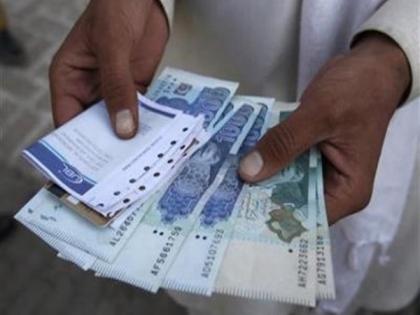Pakistan's reckless economic policies responsible for massive debt servicing obligations: Report
By ANI | Published: April 26, 2022 10:55 PM2022-04-26T22:55:48+5:302022-04-26T23:05:13+5:30
Pakistan's reckless economic policies and excessive overspending, mainly during former Prime Minister Imran Khan's regime, have led to unprecedented pressure on the country's debt servicing and are exasperating the ongoing economic crisis, a media report said.

Pakistan's reckless economic policies responsible for massive debt servicing obligations: Report
Pakistan's reckless economic policies and excessive overspending, mainly during former Prime Minister Imran Khan's regime, have led to unprecedented pressure on the country's debt servicing and are exasperating the ongoing economic crisis, a media report said.
Islamabad's debt-to-GDP ratio had gone up to 88 per cent in 2020 which was the highest in the CAREC (Central Asia Regional Economic Cooperation) region, according to a recent Asian Development Bank (ADB) report, Islam Khabar reported.
Pakistan's debt servicing requirements were the highest at USD 15 billion, the report said, adding that, the country has accumulated more than USD 10 billion in new debt during the pandemic, according to ADB's "COVID-19 and Economic Recovery Potential in the CAREC region."
According to the State Bank of Pakistan (SBP), the ousted PTI (Pakistan Tehreek-e-Insaf) government added over PKR 18 trillion to the public debt during its three and a half year stint, the highest liabilities accumulated by any government in the country's history. As a result, the federal government's debt jumped to PKR 42.8 trillion by February 2022.
PTI government added PKR 14.2 billion/day on an average to the public debt against PKR 2.7 billion/day during 2008-18. The total public debt increased by a whopping 73 per cent from September 2018 to February 2022. The situation is so alarming that the government was at the mercy of commercial banks paying 12.7 per cent interest rates for borrowing money, Islam Khabar said.
The value of Pakistan's currency too massively depreciated to over PKR 185 (against PKR 124.2 in August 2018) in the country's 75-year history, resulting in an even higher cost of external debt servicing, the report further said.
Abid Hasan, a former member of the Pakistan Economic Advisory Committee and Federal Board of Revenue Tax Reforms Group noted that if Islamabad continues with a "business as usual" policy, it could end up taking aid from Bangladesh in a decade.
"We're now drowning in debt and stuck in an anaemic growth orbit, and will continue to be this way since no government has pursued the deep reforms necessary to establish an economically strong Pakistan," he added.
Against this backdrop, Pakistanis can expect very little respite for ameliorating their living conditions, even as the Pak Army continues to spend exorbitant sums on the defence sector, the report concluded.
( With inputs from ANI )
Disclaimer: This post has been auto-published from an agency feed without any modifications to the text and has not been reviewed by an editor
Open in app